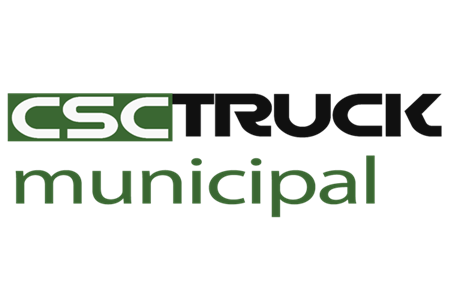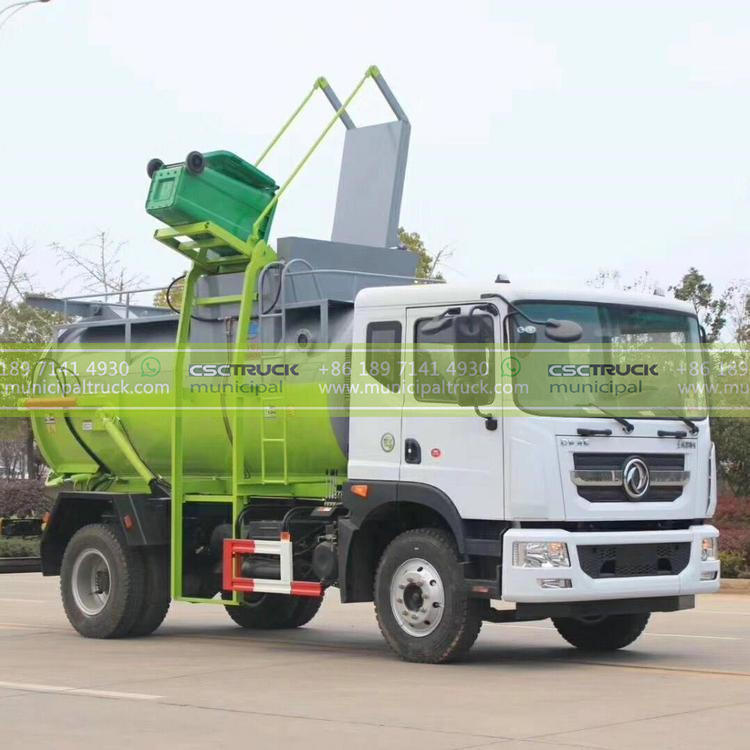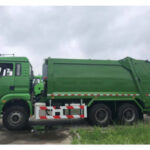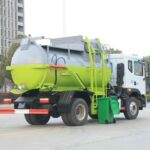Seventeen rapidly growing suburban municipalities across Central Texas have dramatically enhanced residential sanitation efficiency and sustainability through the strategic deployment of 42 next-generation automated side loader garbage trucks, delivered under a landmark agreement between global waste technology leader CSCTRUCK Municipaltruck.com and Lone Star Waste Solutions (LSWS), Texas’s largest regional environmental services provider. This fleet modernization initiative directly addresses critical operational challenges, including driver shortages, escalating service demand from suburban population growth, and heightened safety requirements in communities with narrow streets and high pedestrian activity. The intelligent, semi-automated collection system represents a $19 million investment in scalable infrastructure that reduces physical labor burdens, optimizes routing economics, and supports municipal sustainability commitments across the Greater Austin-San Antonio corridor.
Purpose-Built Engineering for Suburban Collection Dynamics
The unique morphology of Texas suburbs—characterized by winding cul-de-sacs, high-density single-family developments, and restrictive homeowner association (HOA) roadway standards—demands specialized collection vehicles balancing maneuverability, automation, and capacity. CSCTRUCK Municipaltruck.com ’s automated side loader garbage trucks integrate robust hydraulic systems, AI-assisted object recognition, and compact chassis designs specifically engineered for low-speed residential collection:
Intelligent Cart Engagement & Payload Optimization
Patented robotic arms with LiDAR-guided targeting achieve ±2cm positioning accuracy for standardized 96-gallon carts, enabling single-operator collection at 400+ stops per shift while eliminating manual handling injuries; adaptive compression algorithms dynamically adjust compaction force based on load density sensors, maximizing payload efficiency without exceeding axle weight limits on suburban roads with weight-restricted bridges.
Enhanced Maneuverability & Traffic Safety
Shortened wheelbases and rear-steer axles enable 28-foot turning radii to navigate tight subdivisions, while 270° proximity monitoring systems automatically halt arm operations when detecting approaching vehicles, cyclists, or pedestrians within 5-meter zones; integrated camera arrays provide operators with panoramic visibility critical for operating near parked cars and landscaping features prevalent in master-planned communities.
Data-Driven Fleet Management Integration
Onboard telematics continuously transmit route completion metrics, container service exceptions, and mechanical status to municipal oversight portals, while predictive maintenance modules analyze hydraulic pump performance and arm actuator cycles to schedule component replacements before failures disrupt service schedules during peak summer demand periods.
Operational Transformation Across Service Workflows
The implementation establishes a unified collection framework across participating municipalities, replacing fragmented manual operations with standardized automation protocols that enhance service reliability and resource allocation:
- Residential Collection Efficiency: Pre-programmed routes synchronized with cart distribution databases enable trucks to service 50% more households per shift than conventional rear-loaders, with automated weight tickets generated for municipal billing systems at each compaction cycle; dynamic rerouting algorithms adjust daily paths based on real-time traffic congestion and construction barriers common in rapidly developing suburbs.
- Labor Safety & Workforce Development: Elimination of manual lifting reduces musculoskeletal injury rates by an estimated 72% based on LSWS pilot data, while touchscreen control interfaces with gamified proficiency tracking accelerate new operator training to just 14 days—critical in tight labor markets; ergonomic air-ride seats and climate-controlled cabins improve driver retention in extreme Texas heat.
- Environmental Compliance & Sustainability: Reduced idling from optimized stop sequencing lowers fleet diesel consumption by 18%, and standardized cartization minimizes wind-blown litter from overfilled bins; contamination sensors flag non-recyclable materials during collection, providing municipalities with actionable data to improve resident education programs targeting waste stream purity goals.
Regional Partnership Driving Scalable Service Excellence
The seamless integration of this automated side loader garbage truck network highlights the strategic alignment between CSCTRUCK Municipaltruck.com and Lone Star Waste Solutions. CSCTRUCK delivered not only the technologically advanced vehicles but also resident engagement toolkits for municipal outreach programs, on-site operator certification academies, and regional parts depots in San Marcos and Temple to ensure sub-24-hour component replacement. LSWS leveraged its deep understanding of Texas regulatory frameworks and municipal contract management to standardize service protocols across jurisdictional boundaries, deploy bilingual education teams for resident onboarding, and integrate fleet telemetry with municipal smart-city platforms. This collaborative model—combining global equipment innovation with localized operational expertise—creates a future-ready waste management backbone that seamlessly interoperates with LSWS’s existing rear loader garbage truck fleets (servicing commercial districts) and hook loader truck units (managing containerized transfer stations), establishing a fully integrated waste handling ecosystem capable of supporting Central Texas’ projected 31% population growth through 2040 while advancing municipal circular economy objectives.







